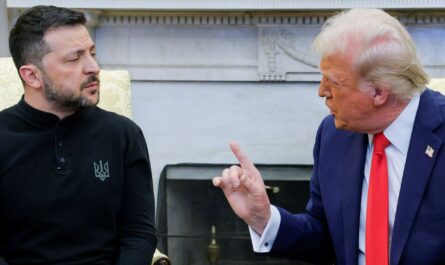The Islamabad High Court (IHC) has recently issued a landmark directive for the removal of the Pakistan Telecommunication Authority (PTA) Chairman, Major General (R) Hafeez-ur-Rehman. This decision has sparked discussions across political, legal, and public forums, highlighting the significance of judicial oversight in appointments to key regulatory positions. As Pakistan continues to expand its digital economy, strengthen internet governance, and manage regulatory frameworks for telecommunication services, leadership at the PTA plays a vital role. The IHC’s intervention underscores the importance of merit, transparency, and adherence to legal procedures in such appointments.
Background of the Case
The Pakistan Telecommunication Authority is a regulatory body responsible for overseeing telecommunication services, internet policies, spectrum allocation, and digital regulations. Its chairman’s role carries immense importance in shaping the future of Pakistan’s digital infrastructure.
Major General (R) Hafeez-ur-Rehman was appointed as PTA Chairman in 2023. However, questions soon arose regarding the transparency of the appointment process. Legal experts, civil society groups, and industry stakeholders raised concerns that the government had bypassed established rules of procedure in appointing him to the position.
Petitions were filed in the Islamabad High Court, challenging the appointment on grounds of procedural flaws, merit violations, and concerns over political favoritism. After a thorough review, the IHC directed the removal of the PTA Chairman, setting a precedent for accountability in regulatory appointments.
Reasons Behind the IHC Decision
The IHC’s directive did not come as a sudden development. Instead, it was the result of a comprehensive legal process examining whether the appointment aligned with established laws and regulatory frameworks. Several reasons contributed to the court’s decision:
- Violation of Appointment Procedures
The court found that the appointment did not fully comply with the prescribed rules and guidelines. The selection process lacked transparency, leading to doubts about merit and fairness. - Absence of Competitive Selection
Typically, key regulatory roles require a transparent and competitive recruitment process, ensuring the most qualified candidates are selected. The court noted lapses in ensuring open competition. - Concerns of Conflict of Interest
Regulatory institutions like the PTA demand impartial leadership. Questions were raised about whether the appointment had been influenced by political or institutional considerations, undermining the independence of the body. - Legal Precedents
The IHC has, in the past, emphasized transparency and merit in public appointments. This decision reinforced earlier rulings, reminding the executive that legal compliance is non-negotiable.
Reactions to the Verdict
The IHC’s decision has drawn mixed reactions across Pakistan’s political and social landscape.
- Civil Society and Digital Rights Activists
Many welcomed the judgment, stating that leadership positions in key institutions like the PTA must not be politically influenced. Digital rights groups stressed that the decision strengthens accountability and ensures fair governance. - Telecommunication Industry Stakeholders
Industry insiders expressed cautious optimism. While some worried about a leadership vacuum potentially delaying ongoing projects, others appreciated the court’s effort to ensure merit-based appointments that could benefit the sector in the long run. - Political Commentators
The decision has reignited debate about the government’s approach to high-profile appointments. Critics argue that bypassing rules erodes institutional credibility, while supporters claim such appointments were made to ensure efficiency.

Impact on the PTA
The removal of Major General (R) Hafeez-ur-Rehman raises questions about the immediate future of the PTA. As a regulator, the PTA is currently managing pressing issues, including:
- The rollout of 5G technology.
- Internet censorship and content regulation.
- Expansion of broadband services to underserved regions.
- Balancing digital freedom with national security.
Without strong leadership, these priorities could face temporary disruption. However, many experts believe that appointing a new chairman through a transparent and merit-based process could strengthen the PTA’s legitimacy and efficiency.
Implications for Digital Governance in Pakistan
The verdict carries broader implications for Pakistan’s digital governance.
- Promoting Meritocracy
By striking down an appointment viewed as irregular, the court has reinforced the importance of merit-based recruitment for regulatory bodies. - Strengthening Institutional Credibility
The decision sends a message that institutions like the PTA must remain independent and free from external influences. - Judicial Oversight in Governance
The judiciary’s role in safeguarding legal procedures for appointments sets a precedent for other regulatory and public offices. - Boosting Investor Confidence
Transparency in leadership selection can improve investor confidence, especially in Pakistan’s growing telecommunication and IT sector.
IHC Directs Removal of PTA Chairman Major General (R) Hafeez-ur-Rehman
Legal and Political Dimensions
From a legal perspective, the case reflects the judiciary’s growing involvement in ensuring accountability within government structures. Courts have increasingly intervened in appointments where due process is ignored.
Politically, the decision highlights a recurring challenge faced by successive governments—balancing political considerations with institutional meritocracy. The removal of a retired military official from a civilian regulatory role also adds a layer of political sensitivity, given Pakistan’s civil-military dynamics.
What Comes Next?
With the IHC’s directive, the federal government is now tasked with appointing a new PTA Chairman. Experts suggest that the government must:
- Follow Transparent Recruitment: Advertise the position, invite qualified candidates, and conduct fair evaluations.
- Engage Stakeholders: Consult industry experts and digital rights advocates to ensure a balanced approach to leadership selection.
- Prioritize Expertise: Select a candidate with deep knowledge of digital policy, telecommunications, and international best practices.
Such steps will not only restore credibility to the PTA but also ensure that Pakistan’s digital future is shaped by capable and independent leadership.

Public Perspective
For the public, the removal of the PTA Chairman may seem like a distant administrative issue. However, it has direct implications for citizens. The PTA regulates internet pricing, mobile services, data security, and content moderation—all areas that affect daily life. Leadership choices, therefore, have a significant impact on digital rights, affordability, and service quality.
This is why the IHC’s verdict is being seen as a win for the ordinary consumer, ensuring that governance structures remain transparent and accountable.
Conclusion
The Islamabad High Court’s directive to remove Major General (R) Hafeez-ur-Rehman as PTA Chairman marks an important moment in Pakistan’s governance and judicial history. By reinforcing meritocracy, transparency, and legal compliance, the verdict sets a strong precedent for how key regulatory appointments should be made.
While the immediate aftermath may create uncertainty within the PTA, the long-term benefits of a transparent and accountable appointment process will strengthen the institution’s credibility. For Pakistan, which is striving to build a robust digital economy, this ruling is not merely about one individual—it is about institutional integrity and the future of digital governance.



